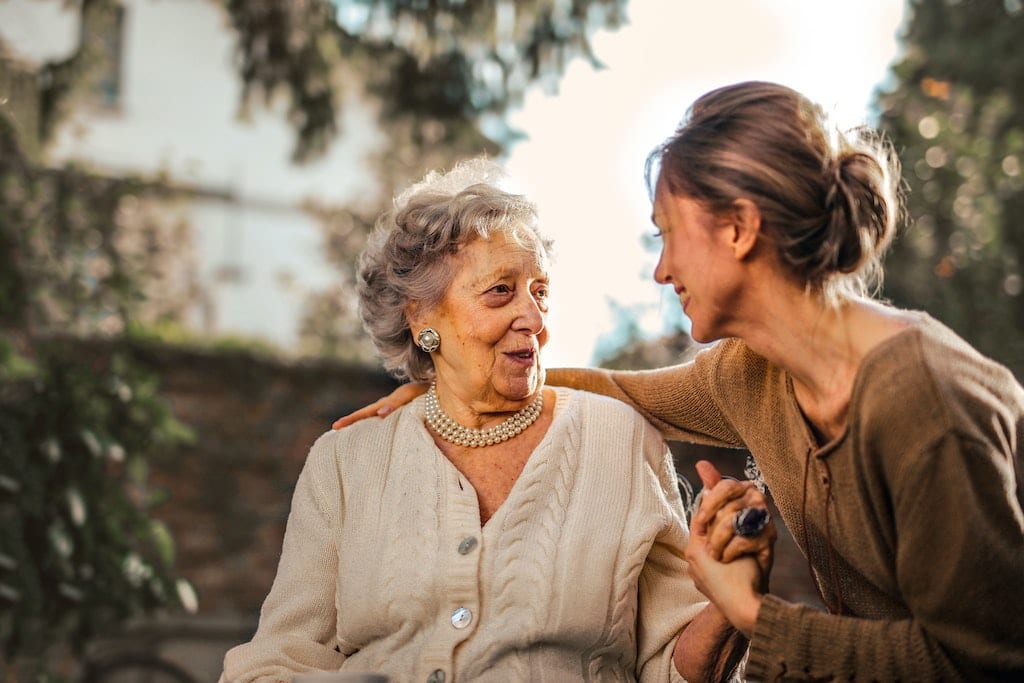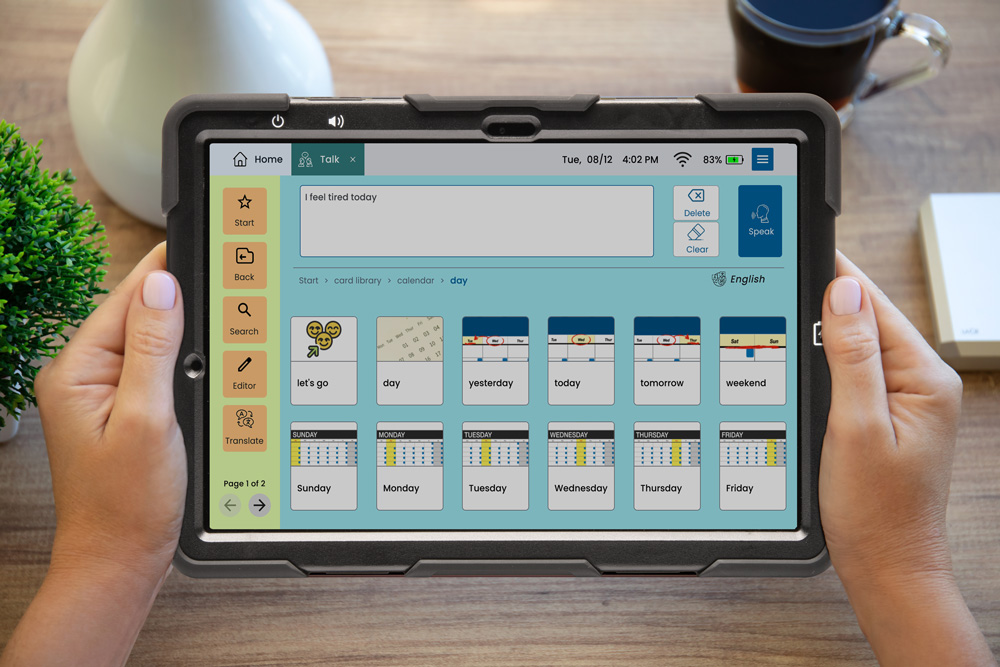
Caring for yourself is, perhaps, the most important thing you can do when you’re responsible for caring for a loved one. Without taking the time to focus attention on yourself, it’s easy to become overwhelmed, burned out, and even resentful.
An increased stress level is the most common side effect of being a caregiver for someone with aphasia (read our 2020 Caregiver Report to learn more). Learning how to manage this stress is one of the best things you can do with your time.
Here are nine tips to consider in your exploration of self-care:
1. Breathe slowly and deeply.
This is the first step in nearly any stressful situation. Stop. Collect yourself. And breathe. Simply taking the time for deep, intentional breaths can make a huge difference. If you are up for something a little more structured, try meditation. Headspace is one example of an online mediation website that offers stress release courses. In just a few minutes you can recalibrate and take on the day.
2. Be mindful and in the present.
Be cognizant of where you are, who you’re with, and what your big objectives are. Being in the moment will keep you from missing opportunities to engage with your loved one.
3. Exercise.
Whether it’s going for a walk, riding a bike, or any form of activity, exercise is one of the best ways to reduce stress while maintaining your health and mental well-being.
4. Do some gentle stretching.
If you don’t have the time or inclination to exercise, try some easy and gentle stretching. Stretching has been proven to not only increase flexibility, but also increase energy levels, help your joints, and increase blood flow.
5. Spend time outdoors.
Combine the best of everything by exercising or stretching outside. The health benefits of being outside are well known. Simply taking in fresh air and sunshine can go a long way in improving your mood.
6. Eat a healthy and balanced diet.
Preparing and eating meals can be an enjoyable activity. The more you learn to enjoy the relative peace and fulfillment that comes from preparing a meal, the more you will find it becoming one of the more positive experiences of your day.
7. Get adequate sleep.
The average adult needs between seven and nine hours of sleep every night. Despite a common belief that our sleep needs decrease with age, it is recommended that even older adults get at least seven hours. Make better quality sleep a priority and try to schedule your day to ensure you’re not burning the candle at both ends.
8. Watch movies and listen to music.
Movies and music can be a great way to take a timeout from your day and do nothing. There are dozens of streaming services on your phone and smart TV that will provide you with more movies and music than you can watch or listen to. If you don’t already subscribe to these services, do some research and try one out. For movies: Netflix, Hulu, Amazon Prime. For music streaming services, try Spotify, Pandora, YouTube Music.
9. Block out time to do what you enjoy.
Sometimes you just need time for yourself. In fact, this is a critical element to self-care. There will be plenty of time in a day (hours!) for you to be with your loved one. In a recent survey we conducted of over 700 caregivers, respondents reported that roughly 66% of caregivers spend one-third of their waking day assisting their loved one. If you don’t take the time to do the things that only you want to do, you will get burned out. You need to be intentional about blocking out time for yourself. Start small. Even 15 minutes a day can be a great start.
Your loved one is much better off when you are happy and healthy. Take care of yourself so you can continue caring for your loved one.
About Contributor
Lingraphica helps people with speech and language impairments improve their communication, speech, and quality of life. Try a Lingraphica AAC device for free.













